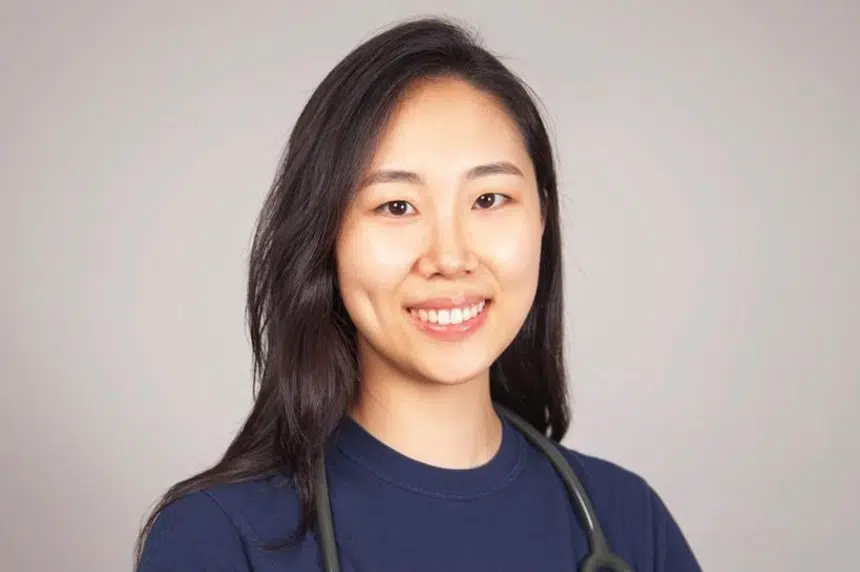Sang Hee Baek started nursing school at the University of Toronto last fall as the second wave of the pandemic was putting health-care staff in parts of the country through an endurance test, making her wonder if she’d made the right career choice.
Nurses, doctors, respiratory therapists and others working with COVID-19 patients were becoming physically and mentally exhausted as some hospitals filled up, deaths climbed and vaccines were not yet a reality.
“I was worried a little bit,” 30-year-old Baek said, recalling the questions she asked herself: “Am I making the choice at the right time or am I not knowing enough to enter this profession and solely relying on my passion?”
She’d applied to nursing school in her last year of a life sciences degree after connecting with community health nurses working with marginalized people, including deaf and hard of hearing adolescents who faced challenges making an appointment to see a family doctor.
“The waiting time for them to just book a translator service can be up to two weeks,” said Baek, who learned sign language to better understand their needs.
“That just made me look further into what’s going on with the Canadian health-care system and made me think: “I want to be a part of this. And if I want to be a part of it I want to be a nurse.”
The pandemic ultimately fuelled Baek’s passion for nursing as she realized the burden being carried by essential workers who are more vulnerable to COVID-19.
“I think it’s a chance for many of the nursing students or medical students, anyone who wishes to offer something to the field, to take it as kind of a mission,” she said of her decision to forge ahead in nursing with a greater awareness about the specific needs of diverse communities.
Baek’s sentiments about a career in health care are shared across the country as nursing schools see a rise in applicants, although the vast majority among the diverse talent pool aren’t being accepted due to a lack of spaces.
Elizabeth Saewyc, director of the University of British Columbia’s school of nursing, said a number of applicants over the last year have mentioned the pandemic motivated them to take on the challenges of a job that could have them saving lives.
She said others pointed out they saw more clearly how inequity is affecting marginalized populations during the pandemic.
The importance of nurses in the treatment of Spanish flu patients served as an impetus for the establishment of the University of B.C.’s nursing program in 1919.
Now, Saewyc said the COVID-19 pandemic has again revealed the value of nursing, with hundreds of applicants vying for 120 coveted spots at the University.
“In previous years we generally had between 500 and 600 applications and this year it was 860,” she said. “In our nurse practitioner and masters of science in nursing programs we’ve seen a 50 per cent or greater uptick in numbers of applicants, and even in our PhD program we saw a jump in terms of the number of applications.”
Lesley Mak, assistant dean and registrar at the University of Toronto’s school of nursing, said applications for the undergraduate program have jumped by almost 25 per cent, while those for the graduate degree have risen by around 20 per cent.
Kimberley Thomson of Prince George, B.C., is in her first year of medical school at UBC and is the western regional director of the Black Medical Students Association of Canada.
Thomson is hoping that the lessons learned about the gaps in the health-care system during the pandemic will better serve patients and health-care professionals who have been overwhelmed and overworked.
Neither she nor her fellow students have been deterred from pursuing their dreams of becoming a doctor.
But Thomson has come to understand that addressing issues like burnout among those working in hospitals that are running out of beds in the third wave of the pandemic will have to involve systemic changes after COVID-19 is over.
“That was a really interesting turning point for me because I started realizing that there’s some bigger system-level issues that I’m going to have to be going into as I continue in my career,” she said.
Expecting doctors to be personally responsible for making changes in their lives won’t improve the overall health-care system itself, Thomson said.
“So people are sometimes told, ‘Focus on meditating, your own well-being, exercise, eat well.’ Those are all great, but it detracts attention from the system-level issues, that people are working in these really toxic environments,” she said, referring to low staffing levels and a lack of resources such as personal protective equipment.
“I’m worried about, down the road, experiencing burnout and not loving and being passionate about what I do. That would be my biggest worry.”
This report by The Canadian Press was first published April 25, 2021.
Camille Bains, The Canadian Press







